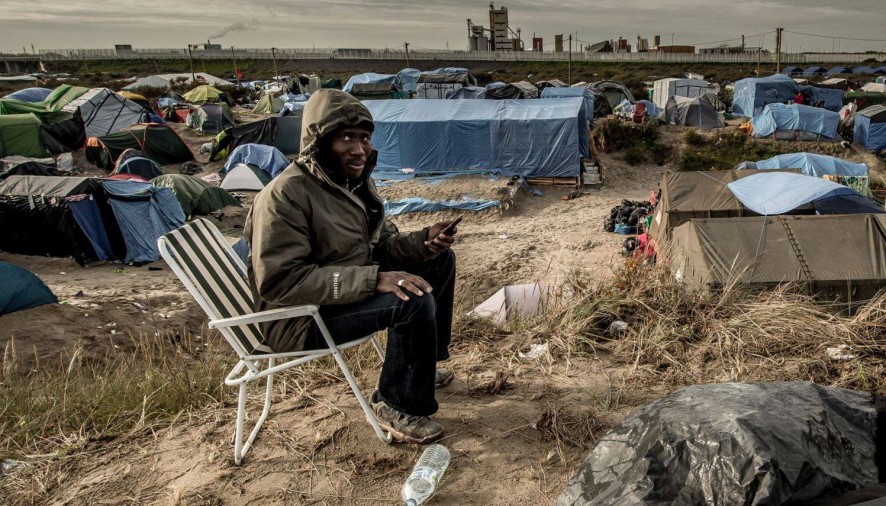With reports reaching us daily regarding Syria’s worsening civil unrest and the resulting humanitarian aid crisis, it is not surprising that the focus of western media is centred around those civilians who are unfortunate enough to have been left still suffering in Syria itself. There are however, over a million refugees, migrants and asylum seekers who in 2015 made perilous journeys via land and sea and escaped conflict in war torn Eastern regions such as Syria, Afghanistan and Iraq in order to enter the EU. 1% of that number are now living in makeshift camps in Calais and, according to David Cameron, waiting for their opportunity to ‘swarm’ across The Channel and enter the UK. With this number only set to rise, it’s clear that asylum seekers continue to be plagued by situational uncertainty long after they have left bombs and bloodshed behind.
There has been well publicised resistance to the influx of refugees into the UK, particularly following their dangerous methods of entering the country, which include clinging onto the back of lorries and walking through the Channel Tunnel. Acts such as these highlight the sheer desperation and naïve optimism of a refugee’s mindest and it’s difficult not to feel a resulting degree of sympathy, especially as French authorities have in the last week warned of plans to bulldoze parts of the Calais camps. Such sympathy can be seen in the admirable actions of local Leeds aid worker Rob Lawrie, a 49 year old who appeared in a French court this week having been charged with attempting to smuggle an Afghan girl named Bahar out of Calais and into the UK at the request of her struggling family. Despite the illegality surrounding his conduct, Lawrie claims he won’t give up his efforts to find help for child refugees. It’s a painful reminder that no parent, regardless of nationality or religious belief wishes to watch a child suffer as those around them endeavour to create a better future.
The anxiety of many migrants in Calais regarding their potential inability to enter the UK and a lack of suitable, collaborative intervention from either the French or British governments has led to alarming and chaotic behaviour in some of the camps. Within the last few days two Dutch film makers were attacked by a group of migrants with a knife and pepper spray as they filmed footage for a new documentary. Such violence is understandably unacceptable and yet, if we consider the motives behind such an attack, the belief that instead of being helped, the migrants were devalued and merely used for entertainment value, it does become somewhat easier to appreciate why people resort to these measures in order to re-establish their stolen human identity.
As violence escalates in Middle Eastern and African regions, it is unlikely that we will see an end to large numbers of asylum seekers attempting to enter the EU in the near future. The future of the migrant situation in Calais remains similarly uncertain, but the plans to destroy the camps there seem brutal and ill-advised. There is no one track or long term solution to this problem until we, as a prosperous and peaceful set of nations, begin to understand what it is to crave such ideal circumstances.
Helena de Carteret
Image property of Phillipe Huguen

